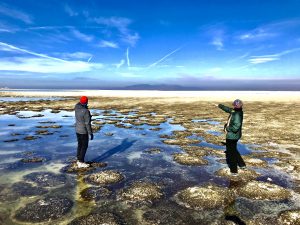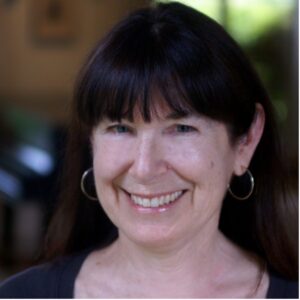By Alice Shorett
 Social media silos of information, separate worlds of news pipelines, advocacy experts—can we ever find a way to talk to one another? Solve a problem or resolve a dispute with varying viewpoints?
Social media silos of information, separate worlds of news pipelines, advocacy experts—can we ever find a way to talk to one another? Solve a problem or resolve a dispute with varying viewpoints?
People notice and pay attention to information that supports their preferences and values and tend to screen out information that does not. Any group convened to work toward consensus on a complex public policy issue will bring different facts and interpretations of those facts to the table, especially when diverse backgrounds and perspectives are represented. Participants may be convinced that their information and sources, those of like-minded colleagues, are “right” while the perceptions of those who think differently are biased and “wrong.”
In practice, this reality has been borne out repeatedly, whether the issue under consideration has been managing old growth forests, reducing airport noise, or addressing radioactive waste. It is important because it often means participants cannot communicate effectively. Without a common base of information and a common vocabulary, a group may not be able to have productive dialogue much less reach agreement on future policy directions.
Therefore, one of the first priorities of the facilitation team must be to assist the group developing a common base of information and a shared understanding of the issues. The facilitator’s challenge becomes one of assessing what information the group needs and how it can be conveyed.
Get notified when new articles are posted to the EDR blog – sign up for our email list »
To assess the range of opinion by defining information needs and identifying resources, the facilitator can ask participants these three questions:
- What information do you think everyone at the table should understand in order to participate effectively?
- What type of resources would best provide that understanding?
- Who should be involved in order to accomplish this understanding?
These questions may be best posed in interviews with individuals prior to initiating a process to get an early indication of the pulse of the group. The questions should be posed again to the full group after it has been convened and has agreed on the group task.
Joint identification of issues and resources has several benefits.
First, it gives the facilitator and participants a sense of the range of opinion within the group. This in itself is sometimes a surprise. Frequently, participants think the differences in the group are greater than they actually are.
Second, it indicates how extensive a joint education effort will need to be for the group as a whole. Complex issues, by their very nature, can be studied, and studied, and studied some more. Usually limited time is available for most groups to carry out their tasks. It is another task of the facilitator to decide how much time can be devoted to joint education and how best to structure the joint education process to enable the group to move beyond position taking regarding “facts” to agreements and creative solutions for the future.
Third, the joint identification of issues and resources give the facilitators a start on identifying the most important resources (whether individuals, types of individuals, tours or written materials, etc.) to provide the group.
An effective strategy is to organize a technical panel that reflects the full range of opinion held by the group. The panels must be carefully planned and structured to avoid irrelevant rambling, or overly positional presentations.
Panel participants should be given a set of focused questions to address. These should be crafted in consultation with the full group or a subgroup of participants. Time should also be allotted for questions from the group and facilitated interchange.
Calls involving all panelists and the facilitator should be scheduled well in advance of presentations. These calls allow the panelists to understand what they are being asked to cover, to discuss and decide respective points each will cover, to get a clear picture of the time allotted, and to know how the panel will be structured. Practice in advance of the meetings are a final check that the panel will meet the objectives set for it.
Far from providing a pulpit for another “sermon” from critics, deliberately organized and managed joint fact-finding display the range of opinion, reflect a balance of perspectives, and allow group participants of all persuasions to ask questions of any of the experts or sources. A frequent result is that the range of opinion proves to be narrower, and the common ground broader, than any anticipated. When there are differences of opinion, the thinking behind the differences is clarified. Organized expert panels expose all participants to the same information and demonstrate that the perspectives of all at the table have validity and should be heard.
Joint education processes add to the breadth and depth of participants’ collective understanding of issues. These processes also create credibility, trust, and a solid foundation for solving complex problems and finding creative solutions.
 Alice Shorett founded Triangle Associates Inc over 40 years ago. Triangle is the first private company in the US to do environmental public policy education and mediation. Alice retired from Triangle, leaving it to flourish in employee ownership. Now she practices yoga, gardens, photographs, and hikes on Bainbridge Island, Washington.
Alice Shorett founded Triangle Associates Inc over 40 years ago. Triangle is the first private company in the US to do environmental public policy education and mediation. Alice retired from Triangle, leaving it to flourish in employee ownership. Now she practices yoga, gardens, photographs, and hikes on Bainbridge Island, Washington.
